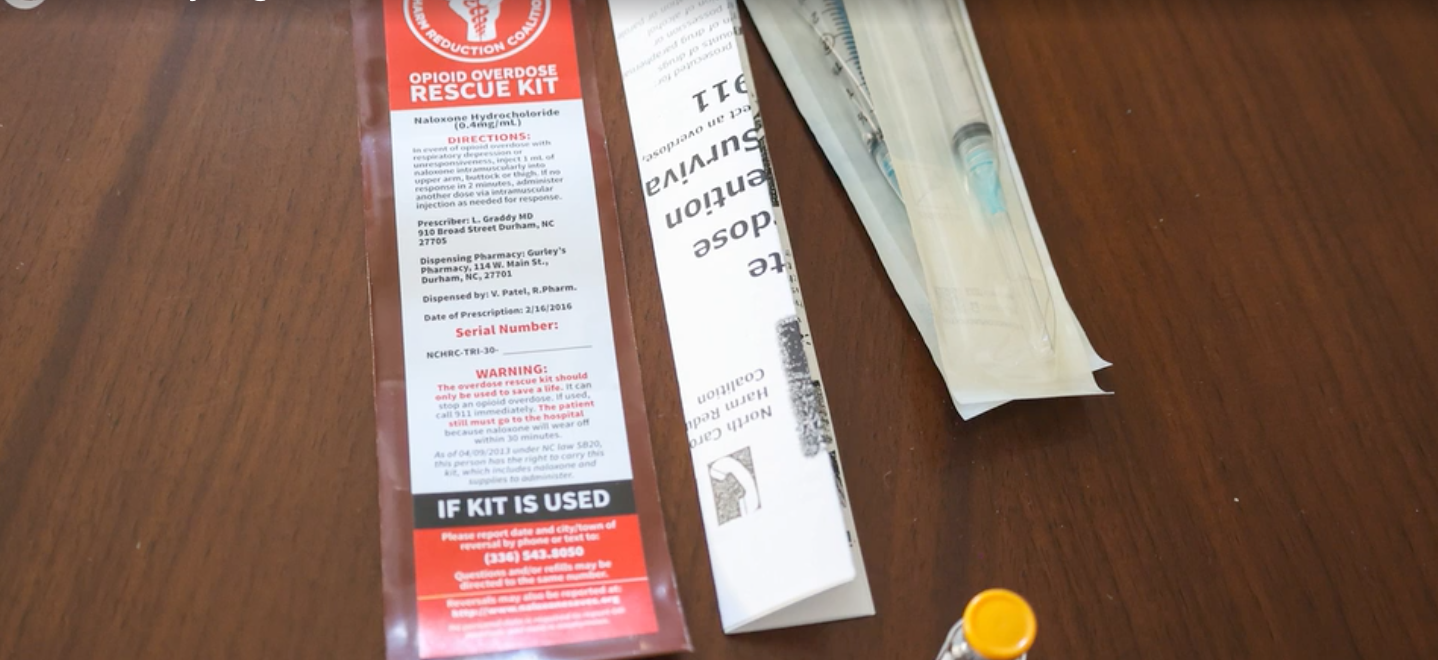A coalition of advocates, including parents who have lost children to overdose deaths, is calling on legislators to expand North Carolina’s Good Samaritan Law.
One key change they want is for fentanyl — the biggest driver of fatal overdoses — to be listed alongside drugs like cocaine and heroin.
These advocates say North Carolina’s law is behind most of the rest of the country when it comes to saving lives claimed by drug overdoses. Namely, due to the recent re-classification of fentanyl possession as a felony, it is not covered under the state’s Good Samaritan Law.
Expand Good Sam NC, the coalition advocating for change, argues that those who use drugs are terrified to call 911 to report an overdose because of loopholes in the law that can lead to legal repercussions and arrest.
Fentanyl was recently re-classified as a felony drug in the state, meaning the law does not protect those who overdose on it.
If bystanders — those who witness someone overdosing on fentanyl — are themselves in possession of the drug, they do not automatically have legal protections. A person who calls for help about their own overdose on fentanyl can also be prosecuted.
“People do not want to call 911,” said Lauren Kestner, Queen City Harm Reduction’s associate director.
“So fentanyl expansion is not only required because (our law) was the weakest across the U.S., but also because now fentanyl is pretty much dominating the drug supply.”
Charlotte-Mecklenburg Police officials previously told The Charlotte Observer that fentanyl is the most common drug locally because it is frequently laced in other substances.
The number of fentanyl-related overdose deaths in North Carolina has steadily increased each year since 2016 when deaths rose from 442 to 3,163 in 2021, according to the state Department of Health and Human Services.
In 2021 in North Carolina, dying of an overdose was nearly three times more common than dying in a car accident. That’s even when traffic deaths in the state were at an all time 20-year high according to U.S. News and World Report.
There were 3,304 overdose-related deaths in 2021 — the overwhelming majority involved fentanyl — and 1,755 traffic deaths.
Queen City Harm Reduction, one of the organizations involved with the coalition, has seen the impacts on the Charlotte community.
The goal of QC Harm Reduction is to provide safe supplies to those who use drugs. Doing this helps to prevent the spread of HIV, Hepatitis, and other infections. In addition to providing safer use supplies, the nonprofit offers training and educational information to participants in their program.
Lately, that training has been about what to do if you’re afraid to call 911.
Kestner tells program members to administer Naloxone overdose reversal medication, if they have any, and then to call 911 but leave the area while keeping an eye on the scene to the best of their ability.
QC Harm Reduction outreach worker Beth Ockerbloom became involved with harm reduction after someone she knew overdosed. In addition to her work with the organization, she is passionate about expanding the law.
“When Good Samaritan does not protect you from criminal charges with fentanyl, that reduces the likelihood that someone is going to call 911,” Ockerbloom said.
Anna Stein works with the North Carolina Division of Public Health as a legal advisor. She spearheaded some work to improve the law in 2021, but it didn’t pass. She is hopeful that it will pass in the upcoming legislative session.
When Stein first began working on ideas for expansions to Good Samaritan, she researched the law in every other state that had one. Out of 40 states, she found that North Carolina has one of the weakest iterations of the law.
“I think what happened is that we were one of the first states to pass a Good Samaritan Law, we passed it back in 2013,” Stein said. “What happens when you’re the first state to do something is that oftentimes you don’t get it right.”
Other southern states, including Tennessee, Georgia and Kentucky, all have better laws than North Carolina, she said.

